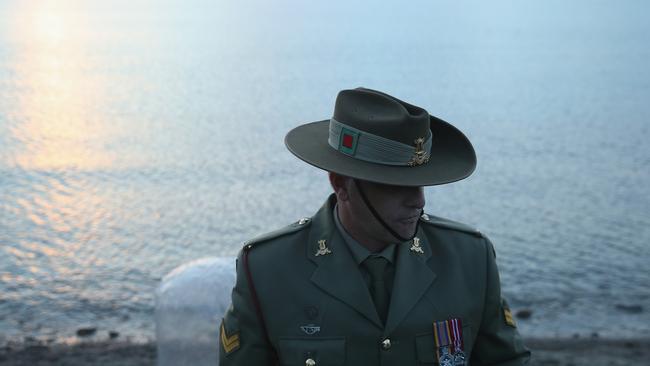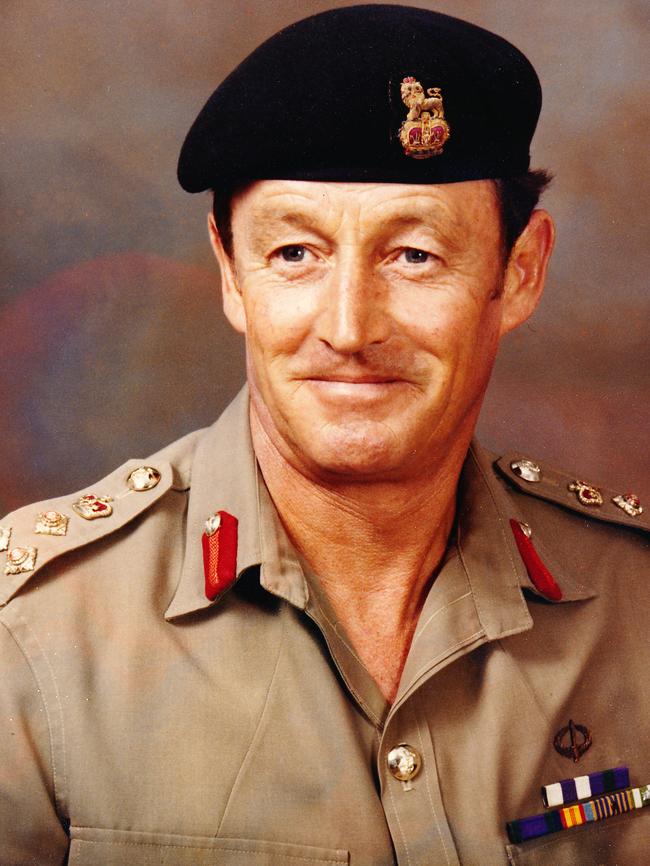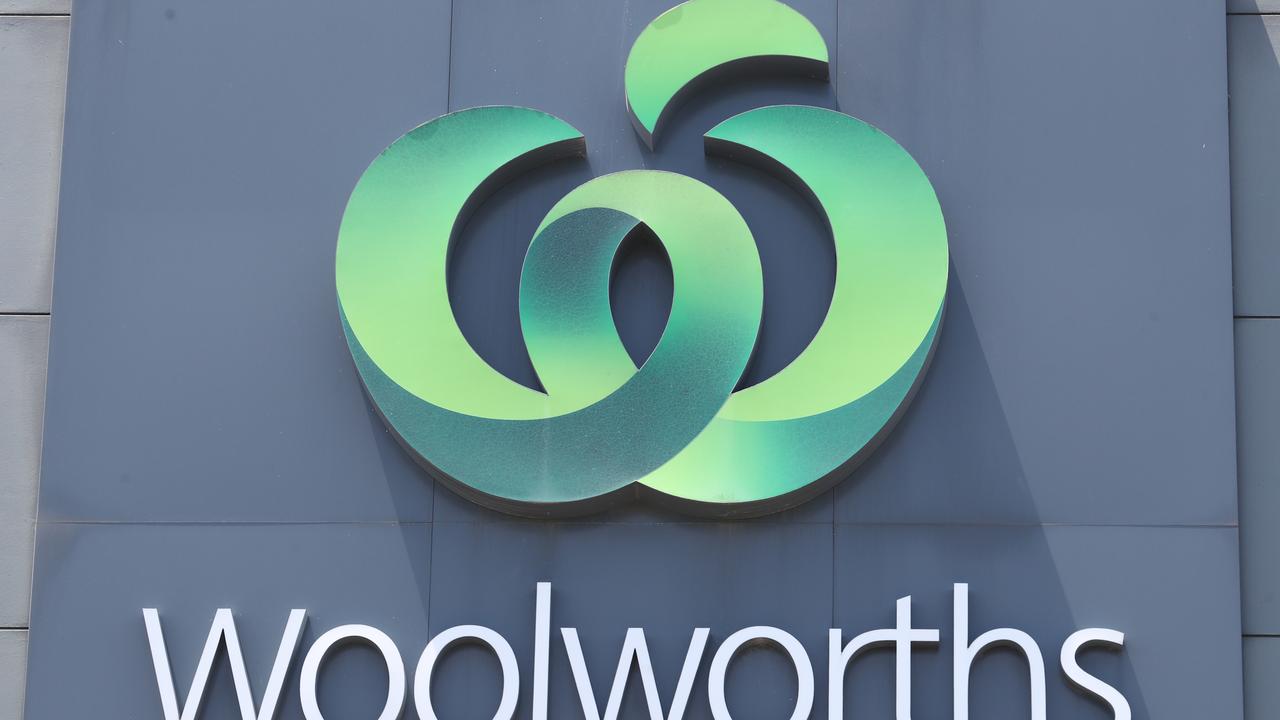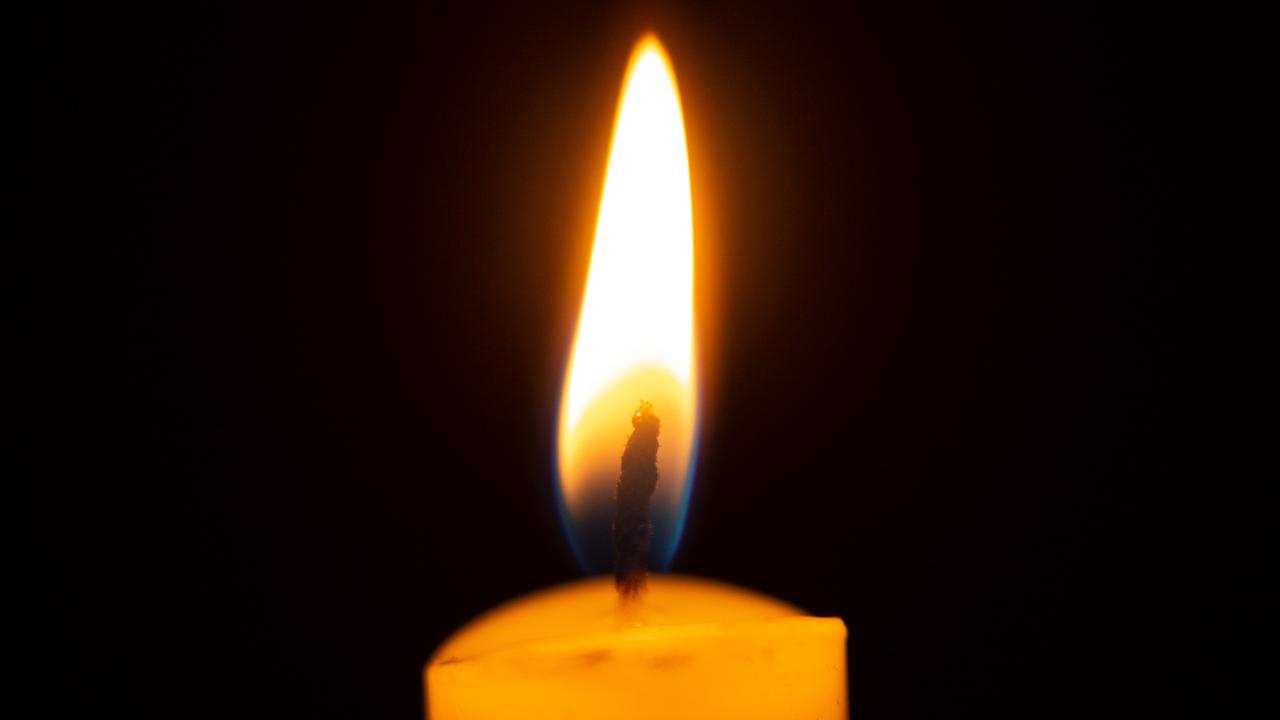Talking Point: And they will stand beside me
AS the bugle blows today, Matt Deighton will bow his head with great pride and count the cost of war with intense sadness.

ANZAC Centenary
Don't miss out on the headlines from ANZAC Centenary. Followed categories will be added to My News.
MICHAEL O’Brien had a wrong-un very few people could pick.
He would trundle slowly into the wicket and, in a flurry of arms and wrist, send the cricket ball hurtling down the pitch to the unsuspecting batsman at the other end.
A left-arm slow bowler, he became a legend of Melbourne suburban cricket.

But unbeknown to many of this “victims”, O’Brien had a secret weapon — a crater the size of a tennis ball in his left mit which enabled him to disguise his deliveries and impart almost unnatural spin.
O’Brien was a veteran of the Great War and, during battle on the western front, a piece of shrapnel sliced open his hand, and his head.
Shattered at the time — he was lucky not to lose the hand — little did he know it would become his secret weapon when he returned to the far calmer pastures of home.
Besides a combined love of music, a good argument and a cold beer, this is the only real story I remember of my grandfather, who died before I was born.
But every Anzac Day he remains at the front of my mind, a shadowy figure in an old cricket team photo to whom I have not uttered a word, but feel closer to than even my dearest friend.
A man who endured the horrors of war but returned to raise a family (one of whom was my mum, who was born on Anzac Day — my grandfather was marching when he heard the news).
A man whose health struggled with the after affects of gassing on the front line, and who died before his time from lung cancer.
A man who walks with me every day.
I have never seen it as a day to celebrate. For me it is an important day. But a day of immense sadness when we at once remember naivety, friendship, but above all, selflessness and sacrifice.
Like many of you, Anzac Day will mean something very personal and almost intangible to me.
Every year I try to rationalise what it actually means to my psyche. How I really feel about it. I feel I may be only partway through this journey.
I have never seen it as a day to celebrate. I could never walk the streets or attend a march with a flag around my waist. For me it is an important day. But a day of immense sadness when we at once remember naivety, friendship, but above all, selflessness and sacrifice.
It is a day on which I struggle to not shed a tear.
The military runs deep in the Deighton veins.
I was born an army “brat” and spent a nomadic childhood in places as diverse as Canada, Townsville and the NSW Hunter Valley.
My father, John, joined the army straight out of school.
His late brother, Derek, also was a career soldier.
Dad was busy but I never missed out. He would often come from an operation in the bush and take me to the nets in his jungle greens, where I would take great pleasure in smashing his half-track leggies, or for a kick of the footy, where he was far more talented than I and played SANFL in Adelaide during his time at the Woodside Army barracks.
Dad, too, will be front of mind come Saturday.
He is a decorated army officer who rose to the rank of Brigadier and became chief executive of the RSL in Victoria.
A veteran of the Vietnam, Malayan and Borneo conflicts, his Military Cross citation holds pride of place in my home office, next to a photo of him, the same age as I am now, grinning widely with a faint moustache (likely fashionable at the time) and a green beret.
The citation, in part, reads: “ ... he commanded D Company with determination and vigour in eight major operations ... In particular during Operation Merino in July 1968, Major Deighton showed professional ability and personal courage of the highest order.”
But it, too, has come with a cost. The emphysema seemed to get hold of Dad quicker than any of us expected.
I will, no doubt, wonder whether it is all worth it. Ultimately, though, I will feel ... great pride for what they have given for their family, their mates and their country.
It seems that one day he was beating me at squash, easily, and doing his deliveries for his long list of Legacy widows, the next he was struggling to walk and being cared for by mum.
Several of his close army friends have succumbed to the horrible disease, and Dad is, as we speak, in the battle of his life.
The army brotherhood has wrapped its arms around him and barely a week goes by that I don’t hear from one of his old mates to check on him (oddly, many of them now seem to live in Tasmania).
Today, so many of the virtues that enabled him to survive three wars — determination, anger, humour and a forlorn hope he may one day see the Melbourne Football Club in the finals — keep him going.
So Michael O’Brien and John Deighton will stand beside me and my children at this morning’s Dawn Service in Hobart. I will feel sad and I will cry. I will struggle to rationalise a powerful range of uncomfortable feelings and emotions.
I will, no doubt, wonder whether it is all worth it.
Ultimately, though, I will feel eternally grateful that they are both in my life, and great pride for what they have given for their family, their mates and their country.
Matt Deighton is Editor of the Mercury.
Originally published as Talking Point: And they will stand beside me


